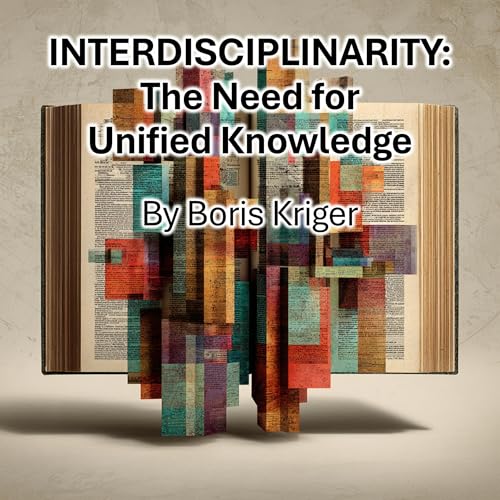
Interdisciplinarity
The Need for Unified Knowledge
カートのアイテムが多すぎます
カートに追加できませんでした。
ウィッシュリストに追加できませんでした。
ほしい物リストの削除に失敗しました。
ポッドキャストのフォローに失敗しました
ポッドキャストのフォロー解除に失敗しました
2か月無料体験
聴き放題対象外タイトルです。プレミアムプラン登録で、非会員価格の30%OFFで購入できます。
¥900 で購入
-
ナレーター:
-
Sarah H. Sanders
-
著者:
-
Boris Kriger
このコンテンツについて
In a world unraveling under the weight of its own complexity, the old ways of knowing no longer suffice. The boundaries that once defined academic disciplines now stand in the way of understanding problems that spill across every line we’ve drawn—climate breakdown, pandemics, technological disruption, global inequality. These are not isolated events. They are symptoms of a deeper fragmentation in how knowledge itself is conceived and practiced.
The Unified Future of Knowledge offers a compelling call for transformation. It explores how science must evolve—not by abandoning rigor, but by embracing connection. From the history of intellectual division to the rise of hybrid sciences, from the failures of over-specialization to the promise of artificial intelligence, this book traces a path toward a new culture of inquiry: one rooted in integration, systems thinking, and the ethics of responsibility.
Rich with insight and grounded in real examples of synthesis at work, this is a manifesto for scholars, educators, and decision-makers ready to move beyond silos and toward coherence. It envisions a future where knowledge is not fragmented but fluid—able to meet the world as it truly is: complex, interwoven, and urgently in need of minds that can think across boundaries.
Interdisciplinarity
Knowledge integration
Systems thinking
Complexity
Scientific transformation
Unified science
Cross-disciplinary innovation



